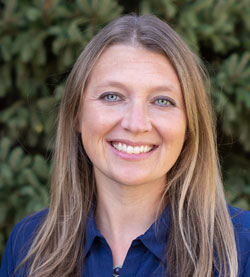
During a visit with my grandfather in the farmhouse where he has lived nearly his entire life, we talked about what the homestead looked like when he was young. Besides dairy cows, his family also raised sheep, chickens, pigs, and horses used to do field work.
My grandpa recalled the time that a neighboring farm went up for sale, and his father purchased it to expand their land base. All these years later, my grandpa remembers that when his dad told his mom they were going to buy that farm, she cried.
I am sure it seemed like a tremendous expense at a time when they were living off a farming income and raising a family of eight children. No doubt, in her mind, there were many other ways that money could have been spent.
Fortunately, that purchase by my great-grandfather turned out to be a wise investment. Those additional fields provided enough land for my grandfather and then later my uncles to carry on the family business, with enough acres to apply manure and grow feed needed for the dairy herd.
I had a similar conversation with a college classmate of mine a few years back. Like me, he grew up on a dairy, and both he and his brother returned to the farm after graduation. My friend said he felt his dad bought land they didn’t seem to need when he was in high school. However, once he and his brother joined the operation, they were so glad to have that additional asset as part of the farm that now supports three families.
In both of these situations, the family’s patriarch took a chance and bet on the future of the farm and the next generation of farmers. Of course, not all bets produce fruitful results, but in these two cases, the investments proved worthwhile.
In other scenarios, a large purchase and more debt may not be best for the future of the business, and a decision to not invest may make more financial sense. That was the case for dairyman Nick Dallmann, whose farm is featured on page 14. Dallmann had a strong desire to add an anaerobic digester to their dairy, but the family was hesitant to make that capital investment.
By exploring other options, they were able to find the right partnership that allowed them to install a methane digester without owning it. Today, their farm reaps the benefits of anaerobic digestion in several ways, including less stored manure and a bedding source for the cows. Meanwhile, the owners of the digester are able to harness and sell the energy produced, and the local environment benefits from this process of turning waste (manure) into renewable energy. It’s a win for all.
And then, there are some investments that cost little or nothing at all. As individuals and as farmers, one of the most valuable traits we can invest in is our reputation. Although the cost is minimal, a reputation isn’t gained overnight. It takes years of careful planning, thoughtful actions, and an investment in relationships.
One way to protect yourself and your reputation is to have plans in place for an unexpected event. When it comes to nutrient management, this could include a manure spill incident on your land or an equipment malfunction. Knowing what you would do before it happens could save valuable time and protect your image. Read about some steps to consider on page 22.
Perhaps the most important investment you can make is in the people around you. Show appreciation for your family and your employees, and invest in their health and well-being. If they aren’t running on a full tank of gas, neither is your farm. And as you work hard day in and day out, please make the time to be safe, and take a few moments to enjoy your life. Investing in your own health and happiness is certainly a worthy cause, too.
Until next time,
Abby






